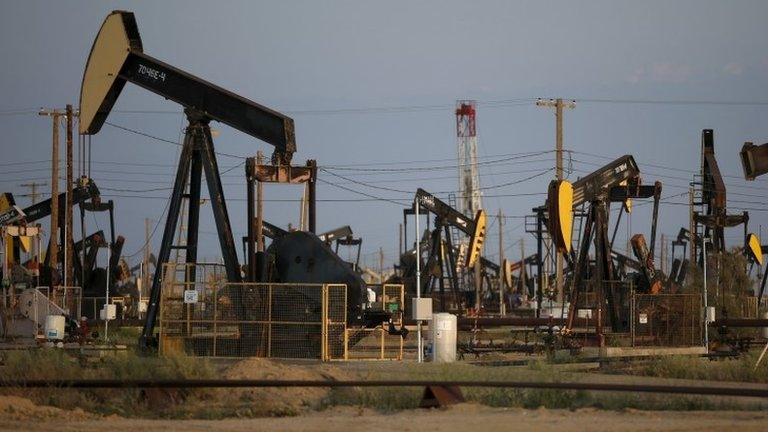Glencore profits hit by oil and metal price slowdown
- Published

Commodities giant Glencore has reported a first half loss of $676m (£431m) after being hit by falling oil and metal prices.
The mining and trading firm had one-off charges including a $792m cost after it pared back oil operations in Chad.
Glencore said, external investment spending next year was expected to be lower than this year.
Chief executive Ivan Glasenberg said the firm was "well positioned" to take advantage of any rise in prices.
"We remain by far the most diversified commodity producer and marketer and are well positioned to benefit from any improvement in pricing when it finally and inevitably materialises," Mr Glasenberg said.
The firm's one-off charges of around $1.6bn, included a $377m of largely foreign exchange related income tax expense.
Glencore reported adjusted first half earnings of $6.46bn, a 29% fall from the same period last year.
Falling prices
Glencore's share price closed down 9.7% at 158.95p. The share price has fallen around 40% so far this year, compared with a 26% fall in the FTSE 350 mining index.
The firm makes about a quarter of its earnings from commodities trading, which had previously allowed it to withstand the steep fall in oil and metal prices slightly better than other large mining companies.
Oil prices are down because of a supply glut, and both Brent and US crude have lost more than half their value compared with a year ago.
The price of copper, Glencore's biggest earner, is at six-year lows after an economic slowdown in China. The country is one of the world's biggest consumers of metals and other raw materials.
Coal prices, another major commodity for Glencore, have also been weak and show no sign of reversing as a supply glut.
- Published10 July 2015
.jpg)
- Published27 April 2015

- Published19 January 2015
